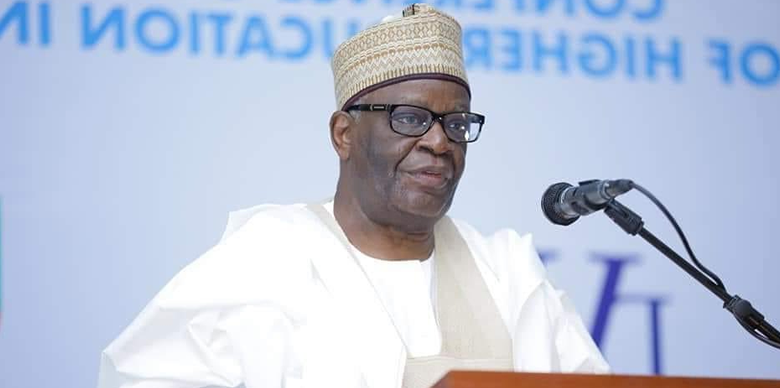
Prof Ibrahim Gambari, the chief of staff to President Muhammadu Buhari, has identified leadership crisis as Nigeria’s major problem.
Politics Nigeria gathered that he made the comments at the 35th University of Calabar (UNICAL) Convocation, maintaining that: “The various dimensions of this leadership crisis have been widely discussed and need not be recounted here.
“Suffice it to note as Chinua Achebe did in his much-quoted book ‘The Trouble With Nigeria’ that the crisis has been hinged on a serial absence of leadership vision, savvy, commitment, patriotism, and selflessness.
“As this leadership crisis has festered and worsened from one era to another, it has compromised key national values to the point of undermining the very viability of the country itself.
“Steeped in a culture of greed, acquisitiveness, and consumption, merit has been sacrificed and replaced with mediocrity, nepotism and parochialism.
“Against the view that the Nigerian problem is a failure if leadership is the counter-position that suggests that people get the leaders they deserve, and to that extent, the locus of the challenges that have bedevilled the country and proved to be intractable is to be found in the nature and quality of the followership.
“For one, the leadership that is thrown up by any society is a direct reflection of the people from whom it emanates. For another, the followership has shown itself to be complicit in every material detail in the acts of commission and omission that have added up over time to undermine national wellbeing and progress.
“Furthermore, the followership has generally been unable and/or unwilling to embrace the collective organisation and consciousness that could pressurise leadership to self-correct and commit to the advancement of the national interest.
“Followers have been more enticed by short-term gain and gratification as against deploying the longterm effort and making the patient sacrifice required for the building of sustained national greatness.”
He added: “On the face of things, the leadership versus followership debate would seem to provide the clear explanatory framework which we require to understand the challenges that have tended to slow and even derail Nigeria on its journey of progress.
I fear though that what the mainstream of the debate offers is a false dichotomy which, at best, only provides a very partial insight into, and skewed understanding of the problems we seek to redress. “Leadership and followership are two sides of the same coin locked into a dialectical relationship that makes it difficult to understand one side of the equation without understanding the other.
Moreover, neither leadership nor followership exist or function in a permanent state of perfection as to permit us to categorically classify one of them as the domain of all that is wrong and improper, and the other as the site of all that is right and proper.”
